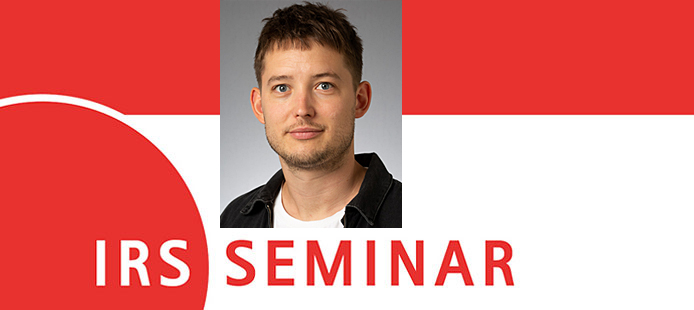Hauptinhalt
Water and the Welfare Citizen: The Material Politics of Urban Water in 20th Century Copenhagen
IRS Seminar with Mikkel Høghøj, Aarhus University

In both urban geography and urban history, scholars have convincingly demonstrated how the modernisation of European cities relied upon the construction of intricate infrastructural networks and the extraction and urbanisation of natural resources. Few studies, however, have so far connected this development to the rise of welfare states and societies in the 20th century Western Europe. Focusing on Copenhagen, this paper addresses the links between urban water, materiality and welfare citizenship in 20th century Denmark. Approaching water as a hybrid object, the paper traces how urban water appeared in different shapes and forms – including drinking water, bathing water, wastewater and moisture – and intertwined with contemporary social values of health, leisure and community. Specifically, the paper will examine selected slum clearance projects and peri-urban landscapes for leisure and recreation constructed from the 1930s onwards. In doing so, the paper argues that urban water came to influence the construction of what can be termed the ‘welfare citizen’ in 20th century urban Denmark. Not only did access to water become integral for a modern lifestyle, but the emergent Danish welfare society also spurred new social and cultural norms for how to live with water which materialised through new forms of e.g. infrastructure, housing and landscapes.
Bio:
Mikkel Høghøj is a postdoctoral researcher at Aarhus University specialised in 20th century Nordic urban-, planning- and welfare history. He completed his PhD at Aarhus University in 2019 with a thesis on the socio-cultural history of Danish modernist mass housing in the post-war decades, focusing on the relations between the built environment and the social and cultural transformations of Danish society in the context of the welfare state. In the spring of 2018, he was a visiting fellow at the Centre for Urban History at the University of Leicester. In his current postdoc project, Entangled Fluid Cities, he explores the cultural and political history of urban water in Copenhagen in the 20th century, drawing upon theories from governmentality-studies, urban political ecology, STS and urban environmental history. More broadly, his research interests cover the urban history of the welfare state, the cultural history of architecture and planning, landscape history, emotional history, material culture studies, urban environmental history and critical theory.

